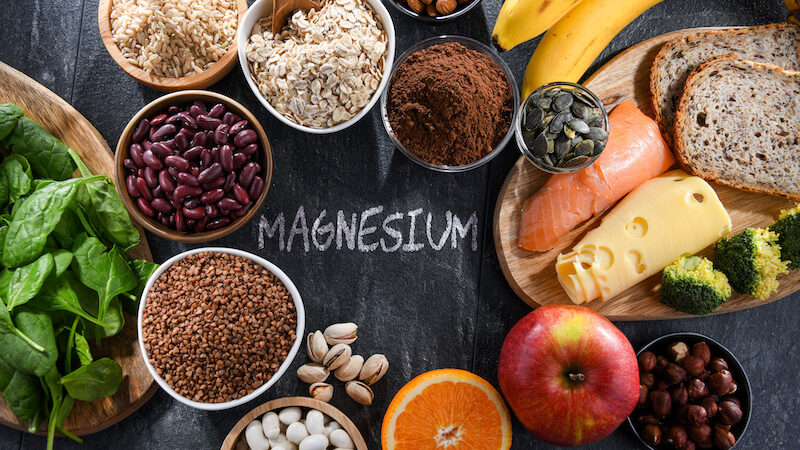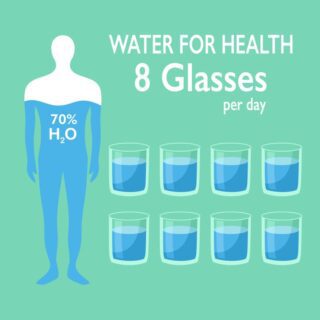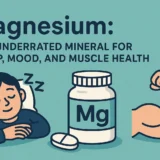The Importance of Magnesium for Overall Health

Introduction
Magnesium is an essential mineral involved in hundreds of biochemical reactions in the body. From supporting energy production to maintaining muscle and nerve function, magnesium is a cornerstone of good health. Despite its importance, many people don’t get enough magnesium in their diet. This article highlights the benefits of magnesium, signs of deficiency, and how to ensure adequate intake.
Benefits of Magnesium
Supports Energy Production:
- Magnesium plays a key role in converting food into energy, making it essential for staying active and reducing fatigue.
Improves Muscle and Nerve Function:
- This mineral regulates muscle contractions and nerve signals, preventing cramps and spasms. It also supports relaxation, making it crucial for physical recovery.
Promotes Heart Health:
- Magnesium helps regulate blood pressure and maintain a steady heartbeat, reducing the risk of cardiovascular diseases.
Strengthens Bones:
- Alongside calcium and vitamin D, magnesium is vital for bone health, supporting bone density and reducing the risk of osteoporosis.
Supports Mental Health:
- Magnesium influences mood-regulating neurotransmitters. Low magnesium levels are linked to anxiety, depression, and difficulty managing stress.
Signs of Magnesium Deficiency
Common Symptoms:
- Fatigue, muscle cramps, irregular heartbeat, and difficulty sleeping may indicate low magnesium levels.
Chronic Deficiency Risks:
- Long-term magnesium deficiency can lead to osteoporosis, high blood pressure, and an increased risk of heart disease.
Prevents Heart Disease:
- Soluble fiber reduces LDL (bad) cholesterol, improving heart health and reducing the risk of cardiovascular diseases.
Regulates Blood Sugar:
- Fiber slows the absorption of sugar, preventing spikes in blood glucose levels and reducing the risk of type 2 diabetes.
Aids in Weight Management:
- High-fiber foods promote satiety, helping you feel full longer and reducing overall calorie intake.
Supports Digestive Health:
- Insoluble fiber prevents constipation and reduces the risk of conditions like diverticulitis and hemorrhoids.
Reduces Cancer Risk:
- A high-fiber diet is linked to a lower risk of colorectal cancer. Fiber supports gut health by promoting the growth of beneficial bacteria.

How to Get Enough Magnesium
Food Sources:
- Include magnesium-rich foods like leafy greens (spinach, kale), nuts (almonds, cashews), seeds (pumpkin, chia), whole grains, and dark chocolate in your diet.
Supplements:
- Magnesium supplements can help bridge dietary gaps. Talk to a healthcare provider before starting supplementation to ensure proper dosage.
Limit Processed Foods:
- Processed foods are often low in magnesium. Focus on whole, nutrient-dense foods to boost magnesium intake naturally.
Stay Hydrated:
- Proper hydration helps the body utilize magnesium efficiently. Drinking water with added electrolytes can also support magnesium levels.
Conclusion
Magnesium is a vital mineral that supports energy, heart health, and mental well-being. Ensuring an adequate intake through diet and, if necessary, supplementation can help you maintain optimal health and prevent deficiency-related issues.
Summary:
- Magnesium supports energy production, muscle function, heart health, and bone density.
- Signs of deficiency include fatigue, cramps, and irregular heartbeat, with long-term risks like osteoporosis and heart disease.
- Foods like leafy greens, nuts, seeds, and whole grains are excellent magnesium sources.

This article reviewed by Dr. Jim Liu, MD
There’s nothing more important than our good health – that’s our principal capital asset.
#medical #telehealth #umedoc









